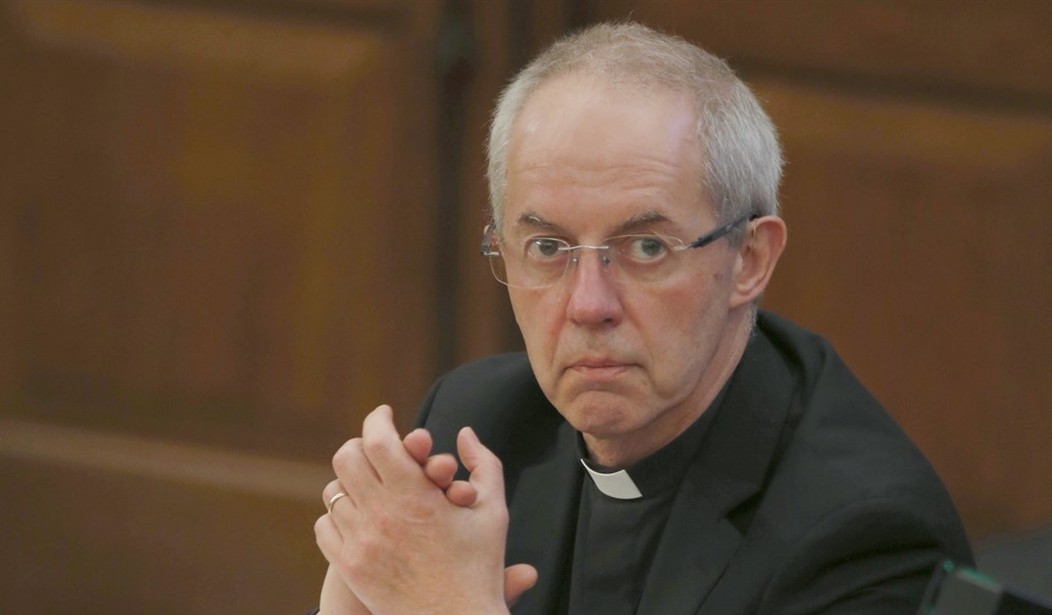There have been two noticeable trends in Christianity over the past few decades. The first is a growing schism between those who hold to the traditional doctrines of the faith and those who take a more liberal approach, picking and choosing which doctrines to follow or eschewing orthodox beliefs altogether. The second is a shift in Christian influence away from the West, which is growing more secular, to the East, particularly Africa.
A recent move within the Anglican church is reflecting both trends. Last week, the Global Anglican Future Conference (GAFCON) met in Rwanda, and the conference concluded that it should distance itself from the leader of the Church of England, Archbishop of Canterbury Justin Welby over his decision to “bless” same-sex unions even as the church will not actually perform gay marriage ceremonies.
Many of the churches in GAFCON that have taken the side of scriptural truth and morality are located in Africa and South America, although some of them are in the U.S., the UK, Australia, and Asia.
“Conservative Anglican leaders said that their church, riven by disagreements over homosexuality, could no longer recognize England’s Archbishop of Canterbury as first among equals and called for an overhaul of how the global denomination is led,” reports Francis X. Rocco at the Wall Street Journal.
Gafcon went so far as to say that it rejects Welby as a denominational leader.
“We have no confidence that the Archbishop of Canterbury nor the other Instruments of Communion led by him (the Lambeth Conference, the Anglican Consultative Council, and the Primates’ Meetings) are able to provide a godly way forward that will be acceptable to those who are committed to the truthfulness, clarity, sufficiency, and authority of Scripture,” reads the Kigali Commitment, GAFCON’s statement following the conference. “The Instruments of Communion have failed to maintain true communion based on the Word of God and shared faith in Christ.”
The Kigali Commitment points out that the disagreement is fundamentally over scriptural differences, noting that “The current divisions in the Anglican Communion have been caused by radical departures from the gospel of the Lord Jesus Christ. Some within the Communion have been taken captive by hollow and deceptive philosophies of this world (Colossians 2:8). Such a failure to hear and heed God’s Word undermines the mission of the church as a whole.”
Related: Conservative Clergyman Calls Out the Church of England’s ‘Christophobic’ Embrace of the LGBT Agenda
This fight has been going on since February when Welby backed a proposal from some bishops to bless same-sex unions. That month, 10 of the Anglican church’s provinces signed a statement denouncing Welby as the leader of the church.
“Archbishops representing 10 of the 42 provinces in the Anglican Communion have signed a statement saying they no longer consider Mr. Welby ‘leader of the global communion,'” wrote Harry Farley at the BBC at the time. “They added the Church of England was ‘disqualified’ as their historic ‘Mother Church.'”
Welby’s office responded with a statement that the rules governing the Anglican Communion “are always able to change with the times—and have done so in the past.” In other words, the Church of England is more committed to following the whims of culture than the truths contained within the Bible.
Other clergy members who are willing to bow to the LGBT idolaters denounced GAFCON for not going along with the crowd.
“They have placed themselves outside the Anglican Communion which is defined by the place and presence of the Archbishop of Canterbury, even though they don’t seem to acknowledge that fact,” said Rev. Andrew Foreshew-Cain, who is gay and married. “It is surely time for the de facto split to be acknowledged by both those who remain in the historic Communion and those who have now founded their own.”
Maybe it is time for the (theologically and politically) conservative and liberal wings of Anglicanism to part ways, much like the conservative Presbyterian Church in America did from the liberal Presbyterian Church (USA) in the latter half of the 20th century.
Dr. Albert Mohler spoke about the hermeneutical differences within Anglicanism on his podcast on Wednesday.
“That’s where those who are standing on biblical authority, and they’re standing for the faith once for all delivered to the saints, who have to say, ‘Look, if you are moving to endorse and to celebrate and to bless what scripture makes unthinkable and impossible, then it is you who have departed from the Christian faith, not we,'” Mohler said.
The division — and potentially, the looming split — within the Anglican church isn’t some “agree to disagree” issue. It fundamentally boils down to whether these bishops and archbishops follow the Word of God or whether they follow culture. We’ll see who stays true to the faith.










Join the conversation as a VIP Member